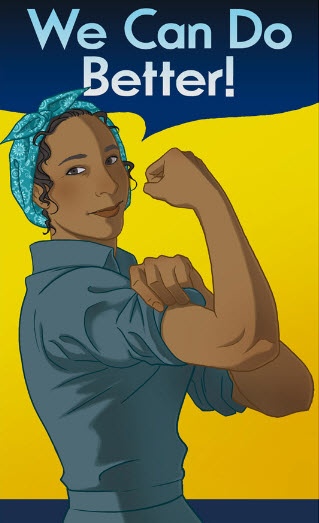Game creator Shoshana Kessock left the Orthodox Jewish faith when she was in her 20s, after spending her life under its teachings. She was raised in Brooklyn, with one side of her family direct survivors of the Holocaust. Her grandmother, specifically, lost most of her family and herself survived Auschwitz before coming over to the United States from Hungary. She passed along a lot of conservative teachings to Kessock, her mother, and the rest of the family.
Advertisement
But that conservatism wasn't consistent. Each generation became more "rebellious," as Kessock said. Her parents were religious, but compared to a lot of her friends, she was raised more secular. She could watch TV, for instance. Her mother became more conservative as she got older, but she "caught most of that rebelliousness." When she eventually left the community, she became separated from her past.
With the game Keeping the Candles Lit, Kessock revisited these traditions, reflecting on her upbringing. Despite leaving Orthodox Judaism, it was an important part of her identity."The game came out of the memories of the three of us and our relationship," Kessock said. "As much as it is talking about traditions and World War II, it's about talking about three generations of women and passing down these traditions. What happens when a person is becoming not only more secular but more progressive in their ideas, and how it relates to the past two generations before you?"Following these women who escaped the ghettos to form a resistance in the forest, the game tasks people with deciding which traditions to uphold as life gets upturned by Nazi occupation, and how potential future generations will be raised.Keeping the Candles Lit is a tabletop roleplaying LARP included as part of the War Birds anthology: a collection of six experiences by five women. Each of the writers was touched by something, often a personal family or group history, and wanted to translate those emotions for others.
Advertisement

History is filled with hidden stories. It's written by the victors, after all, so much of the struggle and grace of ordinary people is left out of textbooks. World War II, the subject of War Birds, obviously had a massive international impact, but most of us, when we learn about it in school, are confronted with the cold basics: facts, figures, death counts, major battles, and prominent leaders.
In American history classes, many of us are taught about Hitler's rise in Germany, the battle at Normandy, Pearl Harbor, the Holocaust, V-day, and other large-scale events. What you may not learn is how WWII may have led the way for modern drag culture, or how Japanese citizens on the way to internment camps emotionally reacted to the shift.Moyra Turkington, the organizer of the anthology, was entranced by the story of the Night Witches—an all-female group of bomber pilots who ran thousands of raids for the Soviet Union during the war. One woman in particular, Lydia Litvyak, was listed in Wikipedia entries, but didn't have a story of her own. Turkington wrote one of the first versions of her entry, but then got caught in a rabbit hole of untold histories. There were flying aces like Litvyak, the women who took over the factories when all the men went off to fight, and Rosie the Riveter, but also stories that weren't, and couldn't, be told with just a Wikipedia article.Turkington ended up writing two stories: Against the Grain, which takes place on a production line, and Model Protectorates, which is a more intimate tale about a family trying to resist the Third Reich in Denmark. Other stories include one about a Japanese family on the way to an internment camp, another concerning five queer women in a motor pool, and one about American women pilots.
Advertisement
"Once you get a taste out there for a story that you didn't know existed, one leads to the next. It becomes a hobby on its own," said Turkington. "I realized that we've always been more than what they taught us in history, and I've really been wanting to discover that."Kira Magrann, creator of Mobilize, was struck by queer culture in the 1940s. She was inspired after reading the book Coming Out Under Fire by Allan Berube, and created a game where players—taking on roles as queer women—talk about gender representation in character and engage in laborious jobs related to the war effort. She reveled in the chance to explore roots that she had no idea even existed.
Others were struck by the stories of other groups and how little press they get. Wendy Gorman's The Things She Carried follows a Japanese family on the way to an internment camp. In the game, players have to figure out what they can bring. Gorman comes from Washington State, which has a large Japanese population, but hadn't heard much about that plight until reading Farewell to Manzanar, a memoir by Jeanne Wakatsuki Houston and James D. Houston about internment."The author's grandmother was trying to sell some of the family's plates, and the person she was attempting to sell them to would not pay the price she wanted," she wrote in the War Birds book. "Rather than sell her items for such an insulting price, the woman smashed them."
Advertisement
Ann Eriksen, who is from Denmark, wrote We Were WASP after reading a story in a Discovery History magazine about women pilots from the US, which she didn't know existed."Whenever I stumble into these kinds [of] stories, they tend to haunt me until I do something about [them]—work with them in one way or another," Eriksen wrote over email.All of the War Birds creators decided to use the medium of tabletop roleplaying because out of any way to tell a story—movies, books, video games—roleplaying games can teleport players into the mindsets of the characters."It's like you're watching a movie but you're in the movie," Magrann said. "You're actually in that world, you're imagining and immersing yourself. You have agency over the story to an extent."Tabletop and LARPs are still fairly niche in the US (this is less true in Scandinavian countries, where Eriksen is from, since they are a big part of childhood and gaming culture). Most of us think Dungeons & Dragons or Vampire: The Masquerade when we hear those terms.
This free-roaming, analog form of play can vary in size and scope. There are the large, 100-person games that can take days of alternate living and require a mixture of improvisation, a deep knowledge of role-playing, and intricate organization skills. There are the small six-player games, such as Dungeons & Dragons, that are more intimate, but can go on for years.
"It's like you're watching a movie but you're in the movie," Magrann said. "You're actually in that world, you're imagining and immersing yourself. You have agency over the story to an extent."
Advertisement
The games in the War Birds anthology aren't any of these. All the games support up to six players and can be completed in an afternoon. The focus isn't on a broad fantastical setting with rules to learn and lore to research, but on intimate, emotional experiences and uncomfortable scenarios that allow players to play outside the box.
The games put the players in the uncomfortable positions of people with marginalized identities. In Keeping the Candles Lit, a player can choose to be either one of the three Jewish women, or an abstract concept like war. In Mobilize, Magrann uses activities before the game begins to get the players thinking about gender presentation and identity as a queer woman.The focus is less on getting into a battle or other "active" event that tests your stats, and more on talking with your fellow players in character. Everybody is thrust into an unfamiliar scenario and gradually worked into a character's role. To learn about the sort of person that would've existed in a certain place and time, the player needs to also grasp core concepts.
In Keeping the Candles Lit, it's about Judaism: how to light the candles for Shabbat, how to dress, and how to pronounce Hebrew words. We Were WASP features a flying mechanic where players interact inside a plane. In Against the Grain, a "bird-in-ear" mechanic acts as an inner voice to characters, presenting societal obstacles such as Jim Crow laws to keep everybody (appropriately) on edge.
Advertisement
Most of the stories star women—with a few exceptions for men characters and abstract concepts—but the games are open to anybody. Some of the best feedback Turkington and the other designers have received came from players who were forced to break character and step into a marginalized person's shoes.Magrann said she specifically saw people working to adapt to gender rules that probably never had to even think about it before. Mobilize features two workshops: one on gender presentation and one on gender performance. Players then think about how their characters may act in everyday life, with a focus on how that person may dress, style their hair, or how they might walk or loiter."Pretty much everybody I've played it with—minus two people—had never thought of this stuff in their daily lives before," she said. "And that blew my mind because I think of it all the time."This feature of role-playing games, the ability to create empathy, bears out in research as well. Multiple studies have been done to test this theory dating back to the 1970s, when psychologists became interested in how people with a history of imaginary friends were able to engage with fantasy. In a 2016 study published in the American Journal of Clinical Hypnosis, it was found that people who played fantasy role-playing games scored higher on the Davis Interpersonal Reactivity Index, which tests empathy. Researchers found that gamers had the ability to identify with others more easily."Pretty much everybody I've played it with—minus two people—had never thought of this stuff in their daily lives before… and that blew my mind because I think of it all the time."
Advertisement
"In a social world, empathy allows us to interact with each other without killing each other, so that we won't eat each other," clinical psychologist Dr. Nancy Hoffer told Geek & Sundry.Obviously it depends on how much a player is willing to take on the role, and not everybody will respond as intended. But for the most part, those who playtested the games in War Birds rose to the occasion and took on the opportunity to experience a story fully."When you get to play these games with people, you are being very creative. So it's a creative outlet, it's a dramatic outlet, it's a social outlet," Gorman said.
The games themselves are small: intimate experiences that take on serious subjects, and that's what made them the perfect outlet for telling these hidden history stories and educating others about them. Roleplaying games are already being used for education—a school in Denmark uses them as a primary aspect of its curriculum—and to tell the stories about how women felt during WWII, it works. Unlike video games, which typically have set boundaries, you can improvise, customize the story, and get as specific as you want. Roleplaying games are accessible and have a low barrier of entry (these especially, which only require a few hours and not a lot of props).Most of all, as all the women stated, there's that empathy aspect. Experiences like this can allow somebody who may not know what it's like to be a woman in hiding during WWII to begin to understand. It's impossible to know exactly how somebody lived, but this might be the next best thing."For just one second, maybe if you play a game about inequality and being treated unequally, and if you haven't experienced it in your lifetime, just maybe for a second you'll be able to see something from somebody else's perspective," Kessock said."For just one second, maybe if you play a game about inequality and being treated unequally… you'll be able to see something from somebody else's perspective,"
